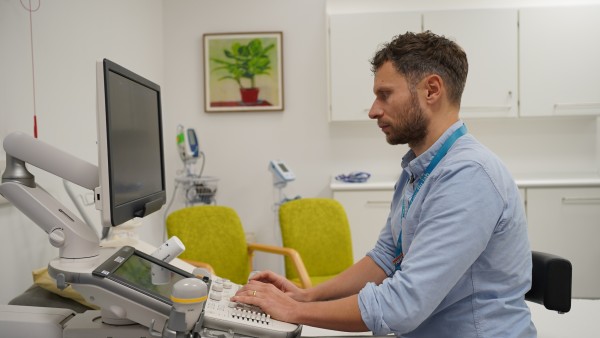Personalised health means tailoring healthcare to individual characteristics, needs, and preferences. It recognises the full spectrum of what makes each person unique, including genetics, lifestyle, environment, and personal health data.
With an ageing population, more people are living with multiple health problems, such as diabetes, cardiovascular disease, dementia, or mental health conditions.
- Health inequalities drive earlier illness, with people in the 10% most deprived areas of England being diagnosed with serious illness a decade earlier than people in the 10% least deprived;
- Annual deaths and deaths in hospitals are predicted to rise;
- Clinical trial set-up and approval processes are often delayed and people with psychiatric disorders are commonly excluded from clinical trials, further widening the health equity gap.
Although research into personalised medicine is advanced, patient-led insights and discoveries are not reaching people fast enough.
Our vision
We will accelerate the translation of cutting-edge discoveries into personalised, evidence-based healthcare that is tailored to individual needs,
ensuring advances reach patients faster while empowering them to be active participants in their own health.
Patients and communities
Lead the way in delivering personalised, integrated care that addresses both mind and body, ensuring evidence-based, co-created initiatives benefit those experiencing the greatest health disparities.
For example we will:
- Accelerate research, development, and adoption of personalised diagnostics, therapies, and best practice evidence to ensure patients receive faster, personalised healthcare;
- Dismantle barriers and increase diversity in clinical research trials, particularly for ethnic minority groups and those with serious mental illness, ensuring equitable access to innovative treatments.
Staff and students
Expand and upskill the research and clinical workforce to support the future of personalised health, ensuring training and career development reflects the evolving needs and diversity of our population.
For example we will:
- Invest in and design tailored career pathways across all professional levels, creating a diverse and sustainable research workforce and futureproofing our research ecosystem;
- Expand access to training opportunities in personalised medicine and research innovation.
Partners and the wider health economy
Create a translational research and innovation ecosystem that accelerates discoveries and scales effective healthcare solutions.
For example we will:
- Transform research operation and streamline infrastructure to improve efficiency and accelerate the delivery of innovative trials and therapies to patients;
- Advance industry collaborations to improve patient access to life-changing innovations and position us as an industry partner of choice.
Impact in action
Our partners have the largest sickle cell research portfolio in the UK. A new gene therapy for sickle cell disease, called Casgevy, was recently approved by the National Institute for Clinical Excellence (NICE). King's College Hospital NHS Foundation Trust is one of five UK sites authorised to treat patients, with the Trust expecting its first in early 2026. The discovery that led to the development of this treatment came from a clinical academic across King's College London and King's College Hospital NHS Foundation Trust.
Clinical trials don’t always reflect our population's rich diversity and ethnic minorities are often left out. A first of its kind, King’s College London’s UK Smart Trials Development Hub draws on our partnership's expertise to make clinical trials more inclusive and deliver personalised care that is tailored to individual needs. The KHP Centre for Translational Medicine aligns with this goal by prioritising research that aims to reduce health inequities.
Through the group's academic hub at the Cicely Saunders Institute, the KHP Palliative Care Clinical Academic Group developed a suite of resources called Let's Talk: Advance Care Planning to arm patients, families, and staff with the knowledge and skills needed to make decisions and plan personalised care. What's more, to equip policymakers with evidence that reduces inequalities in end-of-life care, the group launched the first NIHR Policy Research Unit in palliative and end-of-life care in January 2024. The unit, led by King's College London and partners across multiple universities, will invest £3 million over three years to improve care for individuals and their loved ones when they need it most.
The KHP Centre for Translational Medicine, powered by King’s Health Partners together with generous support from Guy’s and St Thomas’ Foundation, is accelerating health improvements locally, nationally, and globally. As a driving force in tackling health inequities, the Centre has already funded 39 clinical academic posts, strengthening research, innovation, and the translation of discoveries into real-world impact across the health system.
The King’s Centre for Military Health Research is the leading civilian UK centre of excellence for research with the armed forces community. The centre's research has provided much-needed evidence and policy changes on the health and wellbeing of serving military personnel, veterans, and their families. For example, mental health support for reservists was improved entitling them to the same care after deployment as their counterparts.


